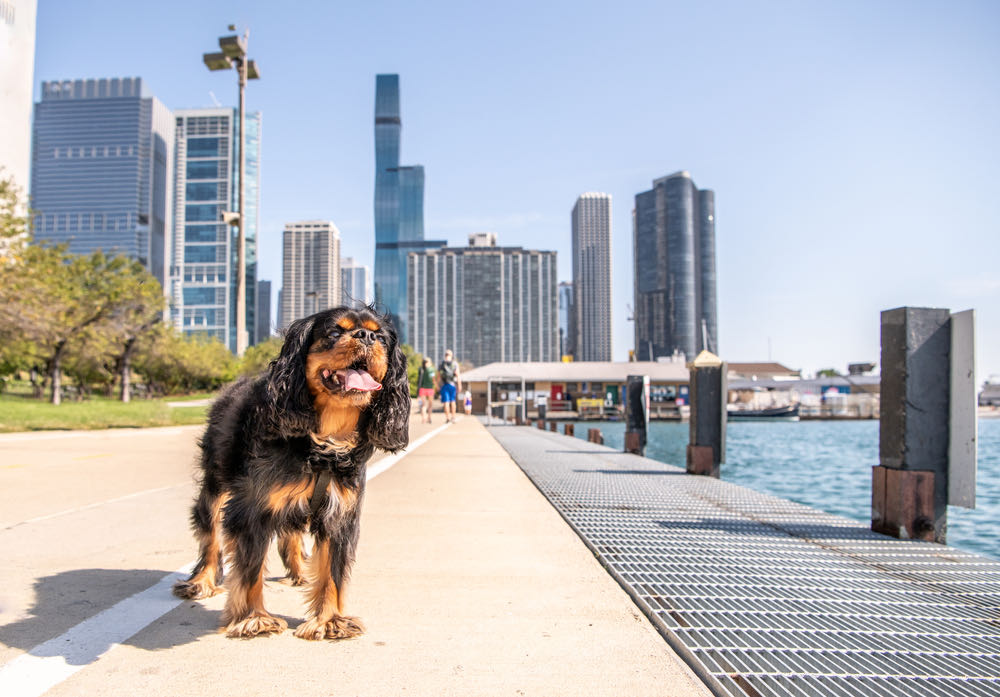
If you’ve just added a dog to your family, it is important that you take it to a veterinarian so it can receive its shots. One of the most important shots it will receive is the rabies vaccine, which will protect it from contracting the rabies virus if it comes into contact with a rabid animal.
However, the rabies inoculation is not a one-and-done incident. Like the shots for the highly contagious canine influenza or bordetella vaccine for kennel cough, you must make sure they receive the rabies vaccine at the right frequency.
How often should dogs get rabies shots in Illinois? At Dog Bite Laws, we provide legal support to victims who suffer harm from dog bites. In this blog post, we provide information for Illinois dog owners on the rabies shot frequency for dogs in Illinois, and how a dog attack lawyer in Illinois can help you if you’ve been bitten.
Legal Requirements for Rabies Vaccination in Illinois
If you own a dog that is between 12 weeks of age and four months, you must make sure it gets the rabies vaccine (510 ILCS 5/8). Only a licensed veterinarian can administer the rabies inoculation. Both dogs and cats must receive this vaccination, with the exception of feral cats.
All companion animals must also receive a booster dose at the right frequency. To ensure they are vaccinated against rabies, you must follow what is recommended by a licensed veterinarian. Some vaccinations need to be updated every year, while others protect your pet from the rabies virus for up to three years.
You will receive an inoculation certificate showing that your dog has been vaccinated. A tag will also be provided, which should be worn on their collar at all times if they get off their leash or run out of your yard.
Recommended Frequency of Rabies Vaccine for Dogs
The Illinois rabies vaccination schedule for dogs will vary depending on which vaccine was administered. Some have a schedule that needs to be completed annually, while others may allow up to three years before receiving another shot. Your veterinarian will let you know which one your dog has, allowing you to keep the shots up to date.
Failing to follow the schedule will typically result in fines, and if your unvaccinated animal bites someone, it could cause additional issues with your local Animal Control office.
Health Implications of Rabies and the Importance of Vaccination to Prevent Deadly Encounters with a Rabid Animal
Infected wildlife has the potential to spread rabies, and anyone bit by feral cats or unvaccinated pets should immediately seek medical attention. Even though it is required by Illinois law to get your pet shots to protect them from rabies, some owners may not comply or may not follow up with required boosters.
This puts everyone at increased risk, including other dogs. Any person who is bitten or scratched by another animal should clean the wound immediately. They should then seek urgent medical treatment if there is no way to determine whether or not the animal was vaccinated.

Steps for Ensuring Compliance with State Vaccination Laws
Unless a licensed veterinarian determines that the vaccination would cause an issue for the animal’s health and puts it in writing, all pet owners must comply with the law. Here are the steps you need to follow if you are a dog owner:
Visit a Licensed Veterinarian
Visit a vet to get your pet vaccinated. Not only will you have peace of mind by protecting their health, but you’ll also avoid fines and penalties.
Follow the Schedule for Vaccines
As required by law, you will need to have boosters for the vaccines at the right intervals. Your vet will let you know whether it is every year or every three years.
Attach the Rabies Tag to Your Dog’s Collar
You will receive an inoculation certificate declaring that your dog has been vaccinated. There will also be a tag that must be attached to their collar. It is critical that your dog wears the tag if they bite or attack another person. Showing your dog has been vaccinated will save a lot of time for professionals who are trying to save lives.
What Should You Do If You Are Bitten by an Animal That You Suspect Has the Rabies Virus?
Rabies is rare yet extremely deadly, and when an animal bites, they may potentially contract this horrible disease. If you have been bitten, you need to wash the wound with soap and water, then get to the nearest emergency room.
If the bite was caused by a wild animal or you can’t determine whether a pet had their vaccines as per their schedule, make sure the emergency room staff knows. As a precautionary measure, you will receive the rabies vaccine. As for the dog, it will be quarantined for up to 10 days to observe for the signs of rabies.
Whether a dog has rabies or not, it can be incredibly traumatic to be attacked or bitten. It’s even more upsetting when the owner has not attached the tags declaring their pet has been vaccinated. You’re bound to have medical bills and emotional anguish from this event, which you can hold the owner responsible for paying. Contact a personal injury attorney at Dog Bite Laws to discuss your legal options.


